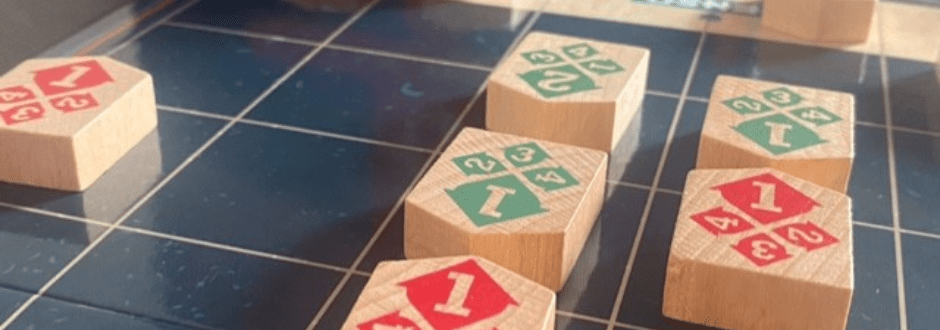Zensu Review
Lexi Posted on:-03-07-23 Reviews,

Abstracted
Chess has been around for…shall we just say a long time, and is still seen as “one of the greatest games of all time”. I tend to disagree. Much like Monopoly, Chess gets its power from its recognisable gameplay and generational nostalgia. But Chess as an abstract game suffers from one of the worst things in gaming. You have to play people of your own level. A newbie will always be trounced by a grand master as the playing field is unbearably uneven. This is probably why so many game designers over the years have tried to break away from that classic mold and create something a little different. This is where abstract games get more interesting. The thing about this sub-genre is that they are often reliant on their ‘look’. Take Santorini or Shobu for example. Both these games strive to look beautiful on the table and encourage you to leave it out as a conversation piece, much like chess boards of years gone by. These types of games are split into two camps. Ones that strive to be new and shiny, the Santorini camp. The others want to look like they have been around for centuries, the Shobu camp. Well now comes Zensu, one very much in the latter camp.
Zens-who?
Designed by Raymond Haysman, Zensu certainly strives to look like it’s a remodeling of an ancient game. With its cherry blossom tree on the cover and Mahjong-like tiles, it does evoke a game from another time. The premise is simple. It is a two player game, each with a ‘home’ territory on their side of the board. Then there are two rows of tiles. Each town has a designated movement written on them. The first down will allow it to move one space forward, two to the right, three backwards or four to the right whereas the second will allow two forward, three to the left, four backwards or one to the left. Taking influence from classic checkers, the point is to move around leaping over your opponent’s tiles, stealing them as you go. If you jump over, or land on, an opponent’s tile/tiles, they are removed off the board never to return. The rub, however, is that you must move the full allowance as shown on your tile otherwise you cannot move at all. You also can’t land on one of your own tiles. So movement begins to get quite restrictive. As soon as a single tile makes it across the board into the opposite ‘home’ territory , the game ends, or if one player ever runs out of pieces.
One Step Forward, Two Steps Back…
This is a simple game to play. They literally painted the rules onto the tiles themselves. You really have to be aware of the surroundings of your tiles as it is so easy to line up an easy steal for your opponent. In fact, being able to steal multiple tiles in one go can be brutal. I wouldn’t say that there were any key strategies to win this game and so replaying isn’t going to level you up to an unbeatable position but there is enough game in here to keep it interesting. The huge moves you are able to make are really satisfying and the silly mistakes are destructive. But it is quick. As soon as you clear the board there is a want to go ahead ‘one more time’.
Will Zensu ever become a ‘classic’ abstract? Probably not. Does it warrant permanent coffee table presence? No. But is it a fun and challenging two play game that can come out time after time and offer an interesting little puzzle for you and a friend. Yes indeedy!
This blog was written by Dan Street-Phillips

 USD ($)
USD ($) EUR (€)
EUR (€)

